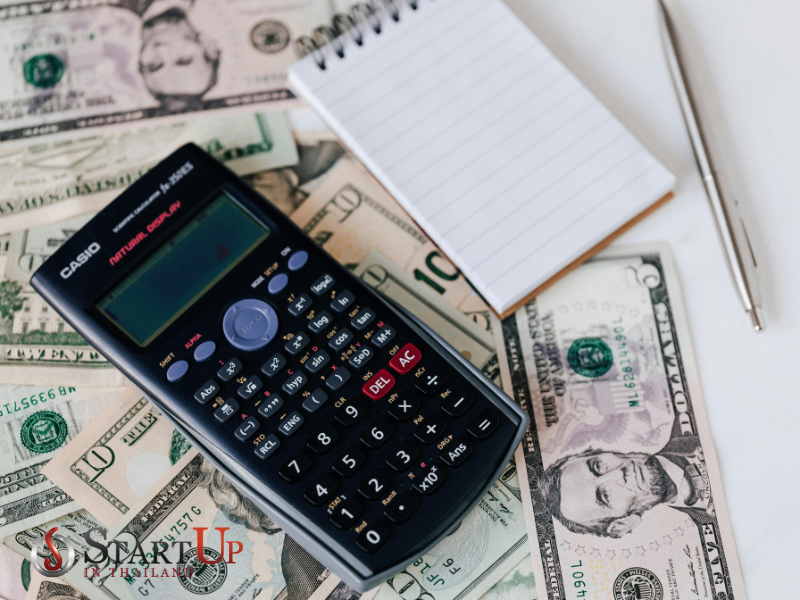Thailand, known for its vibrant culture, breathtaking landscapes, and thriving economy, is also a haven for shoppers. Amidst the allure of bustling markets and modern shopping malls, understanding the intricacies of the country’s personal income tax system, including the shopping allowance, is crucial. In this comprehensive guide, we will delve into the details of Thailand’s personal income tax regulations and explore the fascinating concept of the shopping allowance.
- Understanding Thailand’s Personal Income Tax System:
Thailand’s personal income tax system is progressive, with tax rates ranging from 5% to 35% based on income levels. Residents are taxed on their worldwide income, while non-residents are taxed only on income derived from Thailand. Knowing your tax residency status is fundamental to determining your tax obligations in the country. - Shopping Allowance Explained:
The shopping allowance, officially known as the “annual deduction for personal and family expenses,” is a unique feature of Thailand’s personal income tax system. This deduction allows residents to offset their taxable income by a specified amount, reducing their overall tax liability. The shopping allowance is intended to cover personal and family-related expenses, promoting consumer spending and contributing to the economy. - Eligibility and Calculation:
The shopping allowance is available to both Thai and expatriate residents. The eligible amount is determined based on factors such as marital status, the number of dependents, and the taxpayer’s age. Married couples and individuals with children typically receive higher allowances, acknowledging the additional financial responsibilities they may bear.
The calculation involves multiplying the applicable rate by the taxpayer’s income, and the resulting amount is then deducted from the total taxable income. The specific rates and thresholds are subject to periodic revisions by the Thai Revenue Department, emphasizing the importance of staying informed about the latest updates. - Categories of Personal and Family Expenses:
The shopping allowance encompasses various categories of personal and family expenses, ranging from education and healthcare to insurance premiums and charitable donations. It aims to acknowledge the financial commitments individuals and families may incur, offering a more holistic approach to tax deductions beyond traditional business-related expenses. - Optimizing Your Shopping Allowance:
To maximize the benefits of the shopping allowance, taxpayers should keep detailed records of their eligible expenses throughout the year. This includes receipts, invoices, and supporting documentation for education, healthcare, and other qualifying expenditures. Being proactive in organizing this information ensures a smooth and accurate process when filing annual tax returns. - Tax Planning Strategies:
Savvy taxpayers can strategically plan their expenses to optimize their shopping allowance. This may involve timing significant purchases or planning for deductible events during the tax year. Seeking professional advice from tax consultants or accountants familiar with Thailand’s tax regulations can provide valuable insights into effective tax planning strategies. - Staying Compliant:
Adherence to Thailand’s tax regulations is paramount to avoid penalties and legal consequences. Keeping abreast of changes in tax laws and consulting with tax professionals ensures that you are well-informed and compliant with the latest requirements.
WHAT IS THE EASY E-RECEIPT PROGRAM?
Under the Easy E-Receipt program, eligible individuals can receive a tax deduction of up to THB 50,000 for purchases made from business operators supported by the e-tax system. This tax deduction is applicable for a wide range of goods and services, with the exception of certain items such as alcoholic beverages, tobacco products, motor vehicles, petrol or gas for vehicles, and utility services.
To qualify for the tax deduction, individuals must ensure that the electronic tax invoices or e-receipts are issued for their purchases. These invoices or receipts should be obtained from VAT-registered businesses or non-VAT registered sellers, depending on the nature of the purchase. It is important to note that the tax deduction is only available for purchases made within the specified period and supported by electronic documentation.
WHAT ARE THE ELIGIBLE PURCHASES?
The Personal Income Tax Shopping Allowance covers a variety of goods and services, promoting consumer spending across different sectors of the economy. Eligible purchases under this program include:
Goods and Services from VAT Registered Businesses
Individuals can claim a tax deduction for purchases of goods and services from VAT registered businesses. However, certain categories of products and services are excluded from this tax deduction. These include:
- Alcoholic drinks
- Tobacco products
- Motor vehicles, motorcycles, and boats
- Petrol or gas for vehicles
- Utility services such as electricity, water, telephone, and internet
- Service fees under agreements extending beyond the specified period
- Non-life insurance premiums
Goods and Services from Non VAT Registered Sellers
Individuals can also claim a tax deduction for purchases made from non-VAT registered sellers. However, the eligible items are limited to:
- Books, newspapers, and magazines
- Electronic versions of books, newspapers, and magazines via the internet
- One Tambon One Product (OTOP) goods registered with the Department of Community Development
These eligible purchases from non-VAT registered sellers provide individuals with an opportunity to support local businesses and promote cultural products.
Conclusion:
Navigating Thailand’s personal income tax system, with its unique shopping allowance, adds an intriguing dimension to the financial landscape of residents. By understanding the eligibility criteria, calculation methods, and strategic planning opportunities, taxpayers can make the most of the shopping allowance, fostering a beneficial relationship between personal spending and tax obligations in the Land of Smiles.
Interesting Reads :


